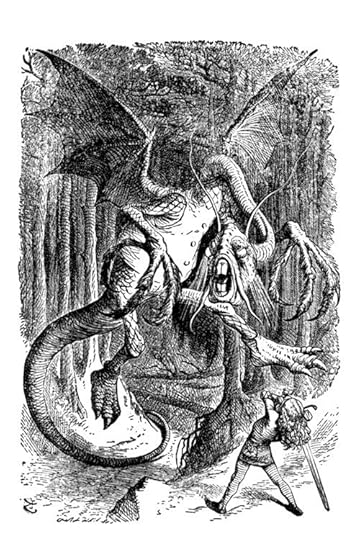Forecast or forecasted? Broadcast or broadcasted?
(that���s Scots for takeaway).
Both are correct, but the irregular form is much more common than the regular one; ��the regular form forecasted seems to be more often used in American English than in other varieties.
If you enjoy this blog, and find it useful, there’s an easy way for you to find out when I blog again. Just sign up (in the right-hand column) and you’ll receive an email to tell you. “Simples!”, as the meerkats say. I shall be blogging regularly about issues of English usage, word histories, and writing tips. Enjoy!
The other day I was checking my fuel bills online, thanks to the wonders of the Interweb (I live in Scotland; it���s cold, and heating bills are painfully high). One of the graphs helpfully provided by the energy supplier contrasts “forecasted usage” with actual usage. That���s right, forecasted��usage.
That set me thinking about that minuscule set of verbs whose past tense forms (simple past and participle) can be either regular or irregular:
��� broadcast(ed)
��� forecast(ed)
��� input(ted)
��� output(ted)
��� offset(ted)
��� podcast(ed)[image error]
(I’ve left out cast and cost, which raise different issues).
In online forums (or fora, if you���d prefer; I certainly don���t), people ask which is the correct form, i.e. forecast or forecasted. This is one of those fairly rare instances in English verb morphology��to which the answer is ���both���.
But, as usual when it comes to English usage, there are some ifs and buts.
Before we look at those ifs and buts, though, it might be worth trying to find out why these two different options exist in the first place.
Take Our Poll
New verbs are always regular
Of course, many of the most common verbs in English are irregular (e.g. bring, forget). But regular verbs far outnumber them, though they may not outweigh them in frequency.
(Just to remind ourselves, regular verbs just add -ed or -d to their base form, e.g. talk => talked, for past tense forms, sometimes with spelling modifications, e.g. try => tried.)
Any newly invented verb should��automatically follow this pattern. Lewis Carroll famously made use of this rule in Jabberwocky with the word he invented that is now part of English:
���And hast thou slain the Jabberwock?
Come to my arms, my beamish boy!
O frabjous day! Callooh! Callay!���
He chortled in his joy.
(He also playfully invented an irregular verb as well, but that���s another story: ���Twas brillig, and the slithy toves | Did gyre and gimble in the wabe: | All mimsy were the borogoves, | And the mome raths outgrabe (from to outgribe).
Verbs from nouns always…
follow the regular pattern almost without exception, in the process known as verbing (the possible and controversial exception being text).
Stephen Pinker (The Language Instinct, p. 380 ) states, having ��proved it experimentally, ��that verbs derived from nouns are filed in a different part of the mental lexicon from verbs derived from verbs; contrast outshone [from verb] with grandstanded [from noun, and not *grandstood]). 
In fact, this pattern is so firmly imprinted in our internal grammars as a basic process that if I were now to ask you to make the invented noun flixxle (= a panicky attack of fidgeting) into a verb, you would automatically know how to do so. Ditto for verbing the noun bafflegab���but don���t forget to double the final -b!
The verbs we���re looking at can be irregular or regular
All, obviously, contain an irregular verb as their second element: cast, put, and set.
Their alternative forms reflect two different and conflicting analyses. If we mentally analyse them as deriving from a noun, they are regular; but if we analyse them as based on the irregular verb within them, their past tense forms will also be irregular. On the whole, the influence of their verb affix prevails.
People subconsciously analyse them in different ways, which explains online bewilderment such as:
“I am having a problem with the word offset. This is what I’m going to type to my vendor:
If we do not receive your Statement of Account by 30 Mar ’12, all payments will be ‘offsetted’.
Is it OK to use offsetted in this sentence?”
Most dictionaries show both forms for most of these verbs; Collins is the only one I know of to show podcasted. Incidentally, the WordPress spellchecker flags up the -ed forms.
As long ago as 1926, Fowler in Modern English Usage made the verb from verb/verb from noun distinction with forecast, but brought in historical etymology to justify his aesthetic preference: “Whether we are to say forecast or forecasted…depends on whether we regard the verb or the noun as the original from which the other is formed…The verb is in fact recorded 150 years earlier than the noun, & we may therefore thankfully rid ourselves of the ugly forecasted ; it may be hoped that we should do so even if history were against us, but this time it is kind.”
Conclusion

You can’t go wrong if you use the irregular (i.e. shorter) form in all contexts. If you use the regular form, some people may find it rather odd, question it, or even dismiss it as “wrong”.
Ifs and buts
(if you want some more analysis)
I wondered if different forms might be used with different syntax and/or meaning, e.g. attributive vs predicative, or past tense vs past participle.
I suppose there is no obvious reason for these verbs all to behave in the same way, and a brief analysis of three of them shows that indeed they don���t.
A rough-and-ready analysis of the March 2013 build of the Oxford English Corpus provides the following figures:
broadcast vs broadcasted : as the past tense 2,160 vs 465, or 82% vs 18% of all occurrences of the past tense. That means that broadcasted occurs more often in percentage terms compared to broadcast than forecasted does to forecast.
When it comes to the past participle, the tagging of the data meant that broadcasted could not be retrieved in its own right. However, the string BE + broadcasted within a five-word span, in other words passive use of the verb, accounted for roughly 40% of all occurrences of the form broadcasted. In contrast, there was not one single occurrence of broadcast in a passive construction. This suggests that there could be a marked syntactic differentiation between the two forms of the participle. The figures do not suggest that this passive use is specifically American.
As regards offset , the corpus yielded only two occurrences of offsetted against 461 of offset as past and past participle.
However, a Google search reveals (apart from dictionary entries and queries over which is the correct form) that offsetted appears mostly in contexts of geometric modelling and accounting, and occasionally in relation to emissions offsetting, e.g. Leaving on a carbon-offsetted jetplane! (obviously referring to the well-known song).
Finally, forecast vs forecasted for all uses = 3,394 vs 360, or 90% vs 10% with roughly the same relative distribution of the forms applying both to past tense and participle.
The data also suggests that forecasted may be more common in American English than in British, particularly as a past participle.
Unlike broadcasted, however, there are very few passive uses of forecasted.
Filed under: Advice for writers, Dictionaries & Lexicography, Grammar, Writing Skills





